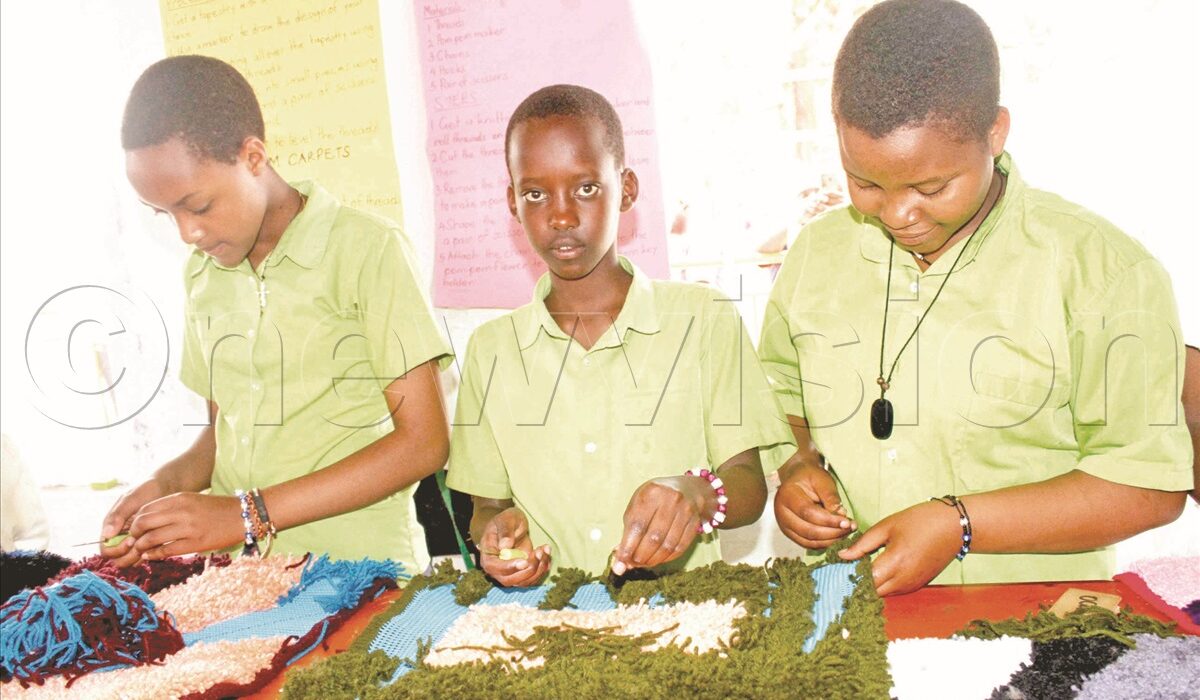This article was first published in the New Vision on January 20, 2021
By Bishop Arnold Muwonge
By some sort of miracle, one of our orphaned children at Kampala Children Centre got a high school scholarship in the US.
When she was still in school in Uganda, she was not the best student in her class. However, she was hardworking. The seriousness, inquisitiveness and amount of time she invested in her studies, coupled with her discipline, were one of the reasons that motivated me to secure the scholarship for her. When she moved to the US, she did exceptionally well.
Before she left Uganda, her A’level combination was physics, chemistry/ mathematics and I assumed that in the US, she would find these science core subjects harder. I expected her to struggle and prepared to offer her support till she cracked the white man’s sciences. However, within four months of study in the US, her grade results were excellent, which made me happy. However, to my biggest surprise, the school was not as impressed as I was.
Weakness identified
As a matter of fact, they had some serious concerns about her studies, which required a quick improvement plan. Their major concern was that she was not performing well in supportive skills such as reading, speed of reading and comprehension. The school, together with her American host family, wanted to work with me to create an environment where she could improve in these areas since they believed that they were so important to her development as a student.
The school realised that if she was to succeed at university, she would need all these other skills besides the core subjects. Do not get me wrong, I am not approving or heralding the US education system; because I am sure they have their own problems and inadequacies. However, I was impressed with the fact that this particular school recognised that our student needed more than simply passing core subjects with flying colours. She needed to develop other skills around, above and beyond mastering mainstream academics.
In Uganda, the emphasis on core subjects creates a learning and students’ development deficit in other areas that are key to their development.
We need to move into skills-based learning. As much as these core subjects are important, the system needs to recognise that in today’s world, you need several skills to succeed.
The Institute for the Future, a firm based in the US, estimates that 85% of jobs that will exist in 2030 are not yet created. Learning for the future requires developing skills beyond core subjects and recognising that different people have different capabilities. In today’s world, you need multiple sets of skills, both core and soft to succeed. The system needs to give students a choice because as it is today, it does nothing to identify the students’ strength. Rather, it focuses on what it believes a student needs. We need to have a systematic way to support the student to identify their strengths and make choices based on that.
Let us try to understand what our students are capable of, and enhance that. I believe people perform optimally if they operate from their positions of strength instead of what is simply available to them. To get the best out of our students, we need to look beyond the textbooks and find some answers from the students themselves through willingness to listen to them, support them and encourage them within their areas of capability.
Learning at Home
Let us improve learning at home. Apart from poor infrastructure such as lack of electricity in homes, lack access to quality information, which is mainly on the Internet, affects students’ learning at home.
There is also another underlying issue — parents’ role beyond paying school fees. Parents need to understand that paying school fees is simply the beginning of their role as ‘home educators’.
The real job is creating a conducive learning environment and a support system that allows the student to keep learning and flourish even at home. It is sad that in some cases, parents have abdicated their responsibilities to teachers.
Teachers have become parents to our children. This is worsened by the many hours children spend at school and the notion that schools provide the best nurturing environments for them.

We are ending up with children who are peer-parented — young people whose lives are shaped by their colleagues.
We need to provide parents with information on the value of education and their role beyond school fees payment. I do not underrate the challenges African parents go through to raise school fees, but we cannot also ignore the fact that most parents do not have the necessary skills to improve students’ learning beyond enforcing compliance or what most of us call discipline.
As a country, we need to support parents to see education as priority at home, for parents to know that learning goes beyond the classroom. As parents, we need to see ourselves that as much as there is school, we are ultimately the main teachers of our children. Our teaching and training responsibility does not end on teaching our children etiquette, social norms and traditions, but goes on to include supporting their academics and skills development at home.
As parents, we should see ourselves as the learner’s cheerleaders and supporters at home. It is well known that students whose parents support learning at home tend to perform well at school. It also has a positive impact on their behaviour.
The writer is the director of Destiny Bridge Academy Primary School and Stride High School in Wakiso town council

